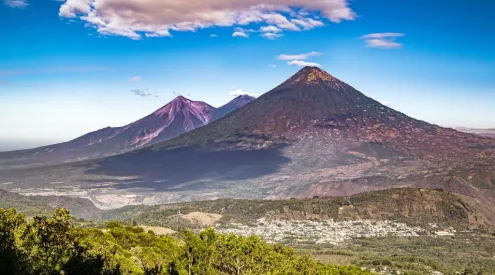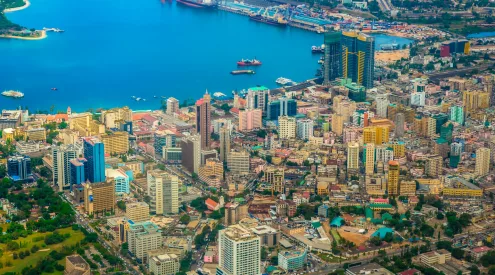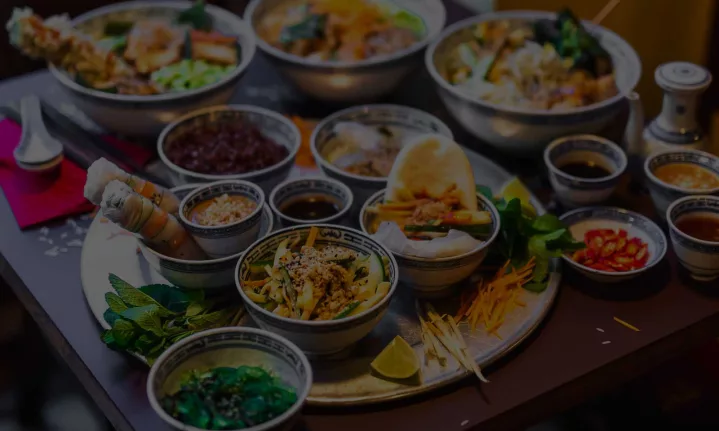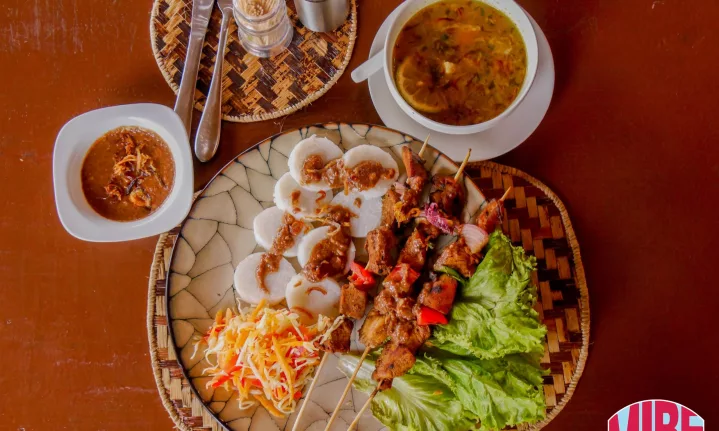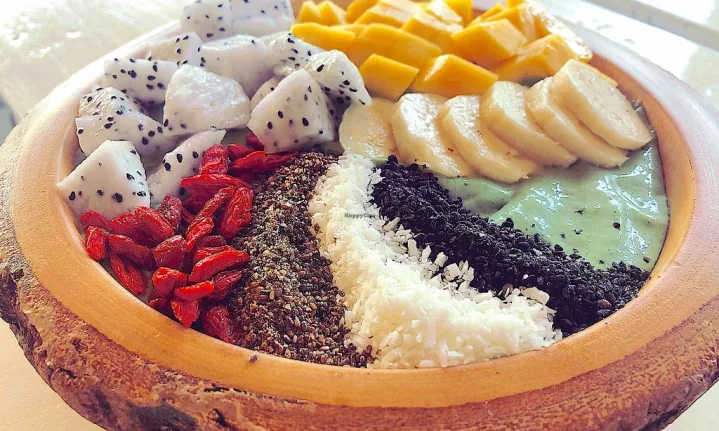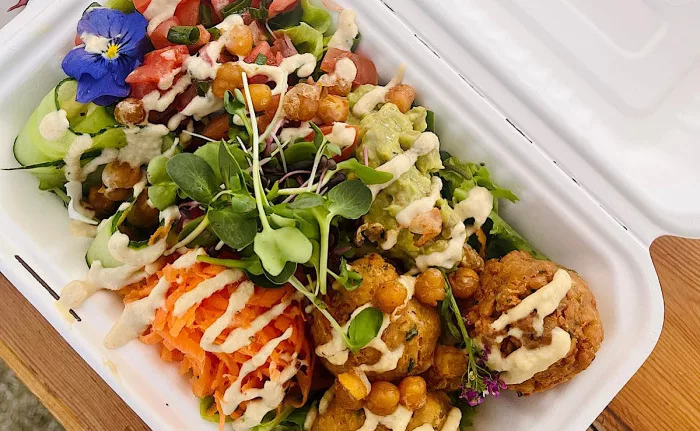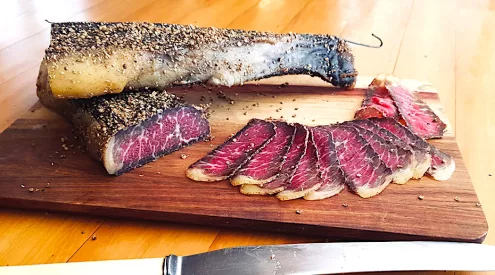Cape Town may be South Africa’s plant-based poster child, but there’s a whole world out there where vegan and vegetarian travellers can eat well, travel consciously, and connect with communities through food. From ancient traditions to eco-forward eateries, these cities prove that mindful eating knows no borders.
Nairobi – Kenya
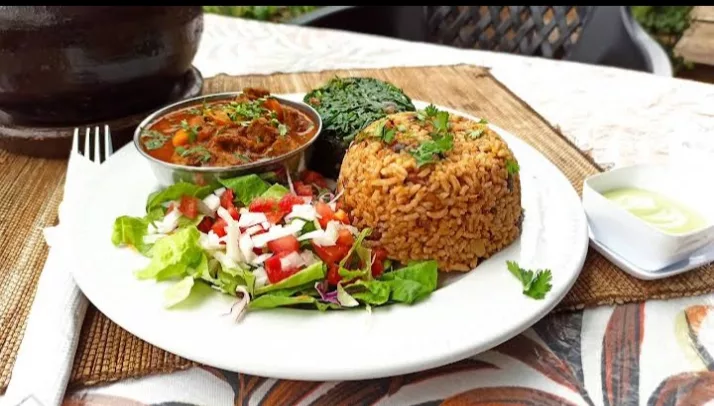
Picture/Nubian Center Shop
Nairobi’s plant-based food scene has been growing steadily, fed by Indian culinary influences, Swahili heritage, and an urban wave of health-conscious eaters. Staples like maharagwe (spiced red kidney beans), sukuma wiki (collard greens), and chapati are naturally vegan — part of daily home cooking as well as restaurant menus. Forward-thinking spots like Vegan Basket and Soul Veg Catering and Bakery offer everything from tofu samosas to battered baskets and almond milk smoothies. What makes Nairobi special is the sense of community: many eateries source directly from small-scale organic farms, and plant-based living is as much about social impact as it is about flavour.
Berlin – Germany
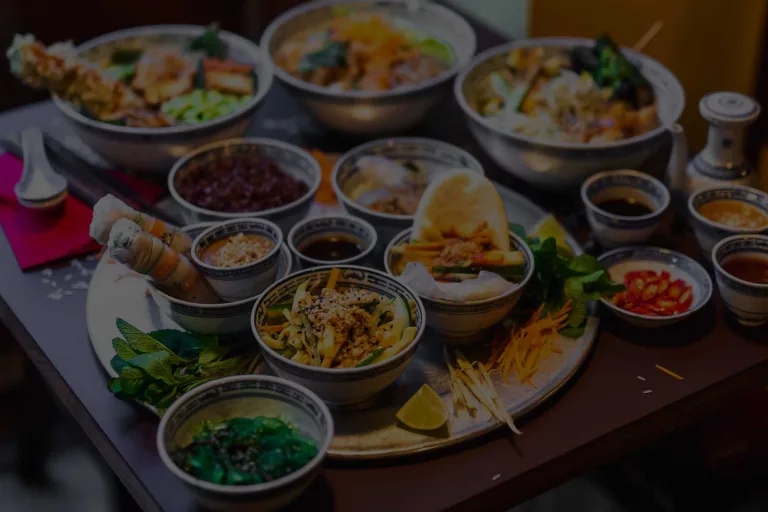
Picture/1990 Vegan Living
While Berlin is often cited as a vegan hotspot, it still feels delightfully down-to-earth, edgy, inventive, and accessible. Forget bland salads: here, you’ll find vegan doner kebabs made from seitan, dairy-free currywurst, and turmeric oat lattes served in grungy-chic cafes. Places like 1990 Vegan Living and Brammibal’s Donuts have made vegan dining playful and unpretentious. Weekly markets like Markthalle Neun also champion plant-based producers and ethical brands. Berlin’s scene is grassroots and political, driven by climate activism and inclusion, making it a place where plant-based eating feels like a lifestyle, not just a dietary choice.
Kigali – Rwanda
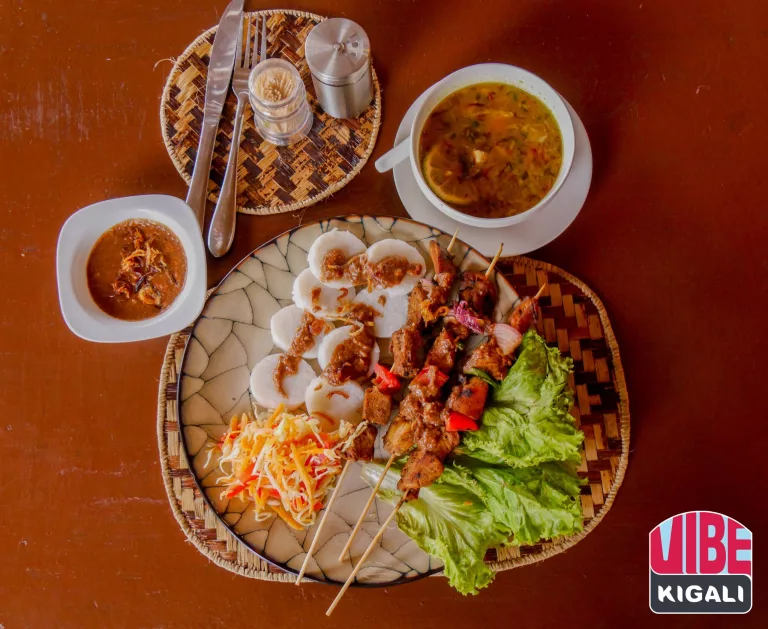
Picture/Vibe Kigali
Kigali surprises with its simplicity. The Rwandan diet, especially in rural areas, leans heavily toward plant-based staples: ibitoke (fried green bananas), isombe (cassava leaves with groundnuts), and local beans served with fresh avocado. In the capital, spots like Borneo Indonesian Restaurant are incorporating plant-forward dishes that highlight Rwanda’s incredible produce. Kigali is clean, walkable, and green, and its food scene reflects this ethos. For an immersive experience, travellers can join a local cooking class and learn how to prepare traditional dishes without animal products, using ingredients grown just a few kilometres away.
ALSO READ: What breakfast looks like across Africa
Chiang Mai – Thailand
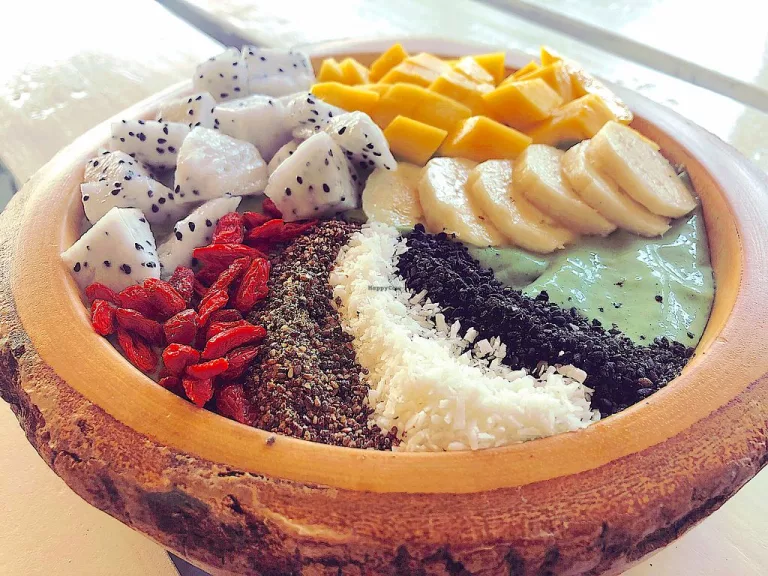
Picture/Free Bird Cafe meal/Happy Cow
Chiang Mai is a spiritual centre, and that energy spills over into its plant-based cuisine. Thanks to strong Buddhist roots, many locals already observe vegetarianism during monthly religious observances, and an entire subculture of “jay” (vegan) food has evolved around this. Street food vendors often offer coconut-based curries, lemongrass soups, tofu stir-fries, and jackfruit salads with zero animal products. Free Bird Café, for example, doubles as a social enterprise supporting refugee communities, serving up mango sticky rice and herbal teas with a conscience. Just remember to say “mai sai nam pla” if you want to skip the fish sauce — and enjoy a guilt-free feast.
Johannesburg – South Africa
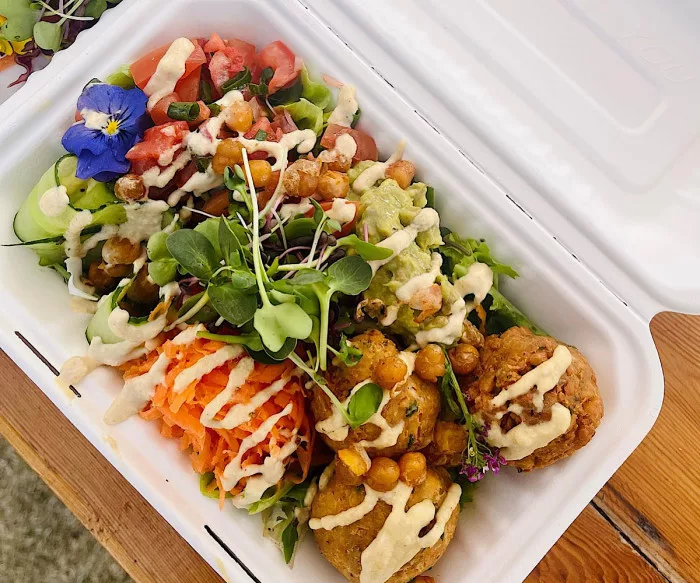
Picture/Leafy Greens Cafe meal/Restaurants
Cape Town often takes the plant-based crown in South Africa, but Joburg is right behind — and offers a more grassroots, multicultural take on green eating. The city’s vegan scene is eclectic, mixing health-conscious cafes, township pop-ups, and creative market food. At Leafy Greens Café in Muldersdrift, just outside the city, you’ll find fresh produce straight from the garden, vegan pies and burgers, dairy-free cheesecakes, and smoothies packed with superfoods. In urban spaces like Maboneng or Rosebank, you’ll find falafel wraps, West African veggie stews, and vegan bunny chows at market stalls. Joburg’s plant-based movement is community-led, authentic, and thriving.
Tbilisi – Georgia
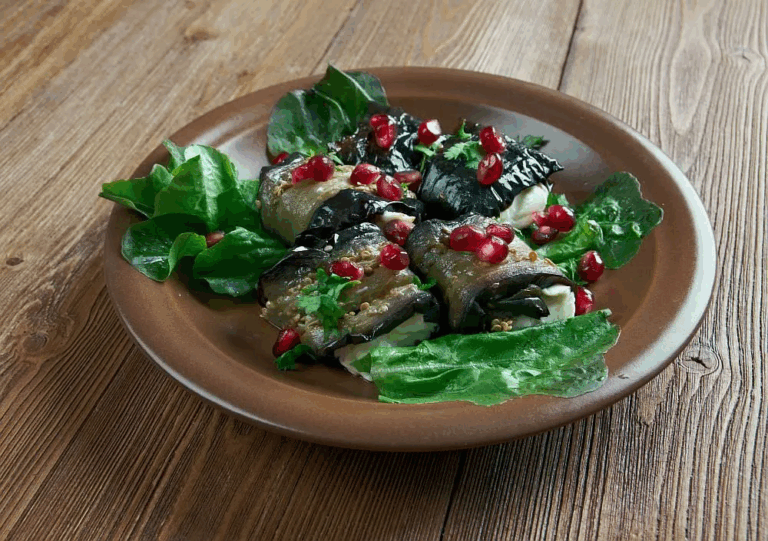
Picture/Badrijani Nigvzit
While Georgia is often known for cheese-heavy khachapuri, there’s a lesser-known side to Tbilisi’s cuisine that leans entirely plant-based. Think walnut-based dips like badrijani nigvzit (grilled aubergine with walnut paste), lobio (spiced kidney beans), and pkhali (vegetable pâtés with herbs). A new generation of chefs is reviving these ancient recipes in modern vegan formats, creating a slow-food revolution with local, seasonal produce. Small eateries and cafés are increasingly catering to health-conscious locals and curious tourists looking to sample Georgian cuisine — no dairy required.
Mexico City – Mexico
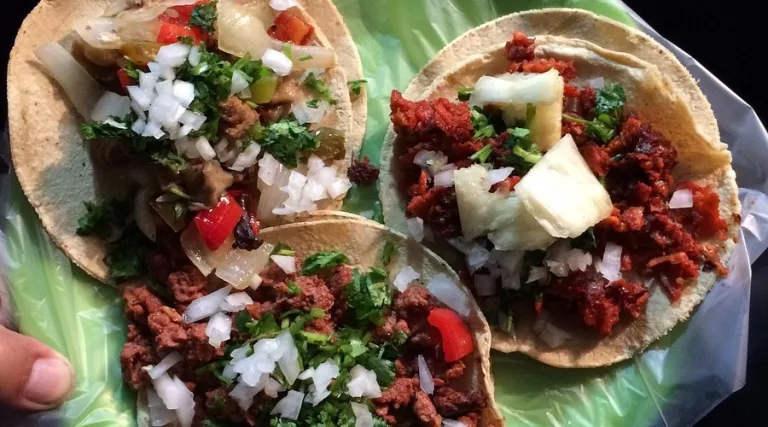
Picture/Por Siempre Vegana Taqueria/Tripadvisor
Mexico City’s rich culinary heritage and plant‑based transformation make it a top pick. Por Siempre Vegana Taquería, a beloved vegan taco cart in Roma (and now a full restaurant), elevates street food with fillings like jackfruit al pastor, soy chorizo, and mushroom alambre—all served on fresh handmade tortillas with a DIY toppings bar. Meanwhile, Vegamo, in Centro Histórico, offers an elegant take on vegan fast‑food comfort: think truffle mushroom risotto, smoked beet carpaccio, hearty jackfruit tacos, and a thoughtfully curated vegan wine list. These two alone showcase the city’s range—from down‑and‑dirty street tacos to inventive sit‑down dining.
Ho Chi Minh City – Vietnam
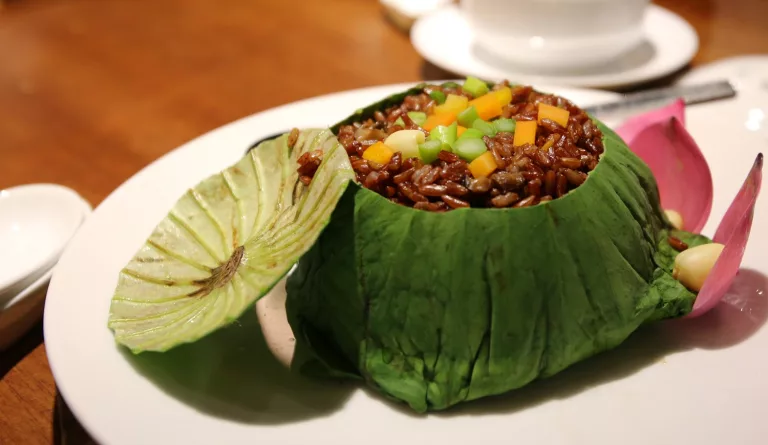
Picture/Viet Street Foods
In Ho Chi Minh City, the words “vegan” and “delicious” are practically synonymous. Vietnamese cuisine, especially in the south, is naturally light and packed with herbs, rice noodles, tofu, and vegetables. Vegan pho is common, as are bánh mì chay (vegetarian baguettes), fresh spring rolls, and sticky rice desserts. At Hum Dining, you can experience refined versions of traditional dishes in an elegant garden setting. Many restaurants have “chay” in their name, which signals a vegetarian or vegan focus, and street vendors are often more than happy to customise dishes to your preference.
Plant-based travel tips
- Use tech wisely: The HappyCow app is a lifesaver for finding vegan-friendly restaurants around the world.
- Ask the locals: Plant-based doesn’t always mean labelled — many traditional dishes are vegan by default.
- Shop local: Visit food markets or roadside stalls to sample seasonal fruits, fresh vegetables, and local pulses.
- Learn the lingo: Phrases like “no dairy”, “no meat”, or “vegan” in the local language can open doors (and menus).
- Be flexible: Many restaurants will happily adapt dishes — just ask.
- Get hands-on: Cooking classes or food tours offer deeper insight into local flavours and ingredients, often in plant-based formats.
Follow us on social media for more travel news, inspiration, and guides. You can also tag us to be featured.
TikTok | Instagram | Facebook | Twitter
ALSO READ: Hot chocolate, mulled wine & chai: Cosy drinks to sip around the world

